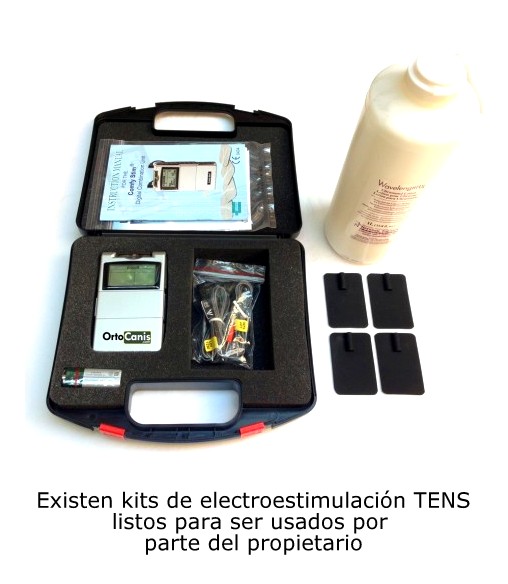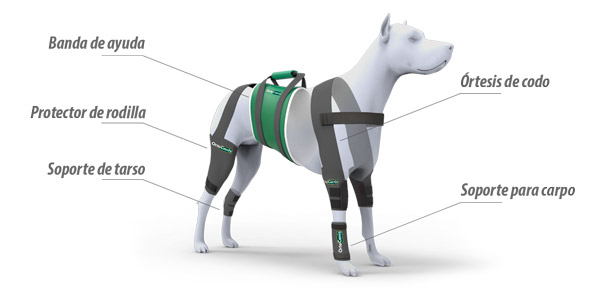
Anti-inflammatories are a diverse group of drugs whose action is to reduce inflammation, pain, and fever. Basically, we divide them into two groups: the nonsteroidal anti-inflammatory drugs (NSAIDs) like Aspirin and the steroids (those that everyone knows as "cortisone"). Both have similar side effects, although steroids are more problematic (especially in dogs), while their beneficial effects are also more potent.
We find the biggest problems in these two cases:
- Use of non-steroidal anti-inflammatory drugs in human medicine for dogs and cats: We should NEVER administer them to animals without a prior veterinary prescription.. And the fact is that animals have a lot of problems metabolizing them correctly, making it very easy to produce a potentially lethal intoxication, even at minimal doses.
- Incorrect use of veterinary anti-inflammatory drugs. Normally due to use without prior prescription. Too high doses or for too long without veterinary control can lead to serious problems.
We should also keep in mind that we need to be more cautious if we use it on older, very young, weakened animals, or those that are taking other medications.
We must avoid its use, unless our veterinarian tells us otherwise in:
- Cardiovascular, renal or liver disease.
- Dehydration.
- When other types of anti-inflammatories are being taken.
- When certain proteins in the blood (especially Albumin) are low.
Symptoms of poisoning
They will correspond to damage in the kidney or liver or to ulcers or perforation of the stomach.
- Mild poisoning: abdominal pain, vomiting, diarrhea, decay, anorexia (no food intake).
- Severe poisoning: dehydration, pallor, tachycardia, bloody diarrhea or vomiting, bruising (Aspirin), increased temperature (Aspirin), jaundice, lack of coordination, seizures, death.
There are rare cases of hepatopathy (liver damage) due to NSAIDs. It occurs in sensitive animals. Symptoms will appear days after ingestion.
In the case of prolonged use of steroidal anti-inflammatory drugs (cortisone), we can develop diseases due to their accumulation (iatrogenic hyperadrenocorticism). Moreover, it is VERY IMPORTANT not to abruptly discontinue treatment with these drugs. Your veterinarian will advise you on the best way to do it.
Treatment of poisoning
- Induction of vomiting (depending on the time elapsed since ingestion).
- Use of activated charcoal.
- Use of stomach protectors such as Omeprazole.
- Intravenous fluids.
Forecast: In cases of gastric irritation and mild kidney or liver damage, recovery is usually excellent if rapid treatment is initiated. The prognosis will be guarded or poor if there is gastric perforation due to the peritonitis it will cause.
Alternatives to traditional anti-inflammatories
First and foremost, it should be noted that if a veterinarian prescribes an anti-inflammatory, it is because it is necessary for the animal. Most of the time its beneficial effects outweigh the adverse effects. However, there are cases where we can substitute or "assist" with safer alternatives to thus reduce their dose.
Joint protectors: They are technical aids that reduce the effects of arthritis. They are used as in the case of humans and usually allow to lower the necessary dose of anti-inflammatory or even avoid it. While they physically stabilize the affected joint, they increase its blood flow, reducing inflammation and pain, stimulating the muscle activity of the associated group and limiting its atrophy in turn. They are also used to speed up the postoperative recovery process.
Omega-3 fatty acids: They act as natural anti-inflammatories. They can also help us in long-term treatments. Especially recommended in inflammatory processes and skin alterations.
Unconventional natural anti-inflammatories: There are anti-inflammatory products with fewer adverse effects than traditional ones. They are interesting for chronic use or in animals for which traditional ones are contraindicated. The Harpagophytum or "Devil's Claw" is a herbaceous plant that is used as an anti-inflammatory. It is not recommended to use products containing it if the dog has coronary problems.
 Smart fabrics: are on the market protectors and orthosis made with fabrics that utilize the animal's own heat to soothe pain and aid in recovery.
Smart fabrics: are on the market protectors and orthosis made with fabrics that utilize the animal's own heat to soothe pain and aid in recovery.
Physiotherapy and electrostimulation: Through these two techniques we can reduce pain and aid in a quicker recovery. There are professionals dedicated to canine and feline physiotherapy. The electrostimulation It can be used even at home, applied by the owner and at a very reasonable price.
Heat: the infrared lamps and the direct application of heat They can be a great help in relieving our animal's pain.
In general, we can say that the best way to take advantage of the benefits of anti-inflammatory drugs is to always have a veterinary prescription, know the symptoms that may indicate that "something is not right" and be aware of the alternatives and aids that can help us improve our dog's life.See: wheelchair for dogs

